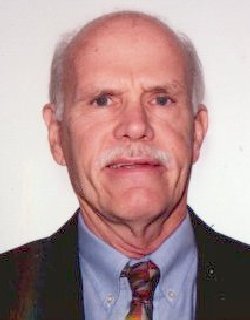

Dr. David E. Allen – A Member of the Canadian Society for Civil Engineering
Dr. Allen graduated from Queen’s University in Civil Engineering. He obtained a Masters at the University of British Columbia and a PhD in Structural Engineering from the University of Illinois. He is currently a consultant to the Institute for Research in Construction.
Dr. Allen joined the National Research Council upon graduation, working in what is now the Institute for Research in Construction. However he had worked for a few years with consulting engineering companies. One of these was Ove Arup and Partners of the UK, who were assigned work on the Sydney Opera House. Perhaps this is where Dr. Allen got his introduction to creative structural engineering. For those of you who have seen this magnificent building, you can easily understand the reason for such creative work. In fact, this was one of the first structures where the new technique, finite element analysis was used.
Dr. Allen is now a world ranking authority on the development of Codes and Standards that are used to ensure the safety of structures, and to optimize their design. As is required by the mandate of the Julian C. Smith Medal, awarded for “achievement in the development of Canada”, in civil engineering this can be considered in terms of development of infrastructure. The construction of safe and effective buildings depends, not only on a sound design, but also on prior research, development and codes working with which practicing engineers must comply. It is in this area that Dr. Allen built his national and international reputation.
Over the last 3 or 4 decades, the definition of loads and their application to structures has moved from a deterministic approach to a probabilistic one, enabling the more rational evaluation of safety and risk. Dr. Allen has been in the forefront of this change, working on snow, wind, seismic and other loads for incorporation into a limit states design format. His early work was a major factor in enabling Canada to become an international leader in certain design procedures that are now used worldwide.
The careers of many engineering researchers have justifiably dwelt on the behaviour of materials, steel, concrete, wood and masonry, often because financial support is available from industry. Dr. Allen chose the other side of the equation. He elected to evaluate the resistance of such materials and have them designed such that the probability of failure was minimized. A creative idea! He set out to make structures sufficiently safe and affordable, and help make Canadian society comfortable in our challenging environment.
A second area of expertise for Dr. Allen, which arose from his study of the resistance and loading of structures, is vibration. He has authored guidelines on Floor Vibration and on the seismic and structural rehabilitation of buildings. He has also written 7 commentaries to Part 4 of the National Building Code of Canada, and introduced limit states design in the Building Code. He has authored 60 other papers on a variety of subjects when reading the titles.
Dr. Allen’s life seems more like one of high adventure for he has investigated the impact of earthquakes in Quebec, Vancouver, San Francisco and abroad, studied tornado damage through Canada and the Caribbean, viewed the effects of snow loads and train induced vibration to damaged buildings and roofs in the Rockies, collapses of hockey arenas, wind storm damage, buildings in the state of progressive collapse, floor vibrations from the activities of people, and other related activities that damage structures. From these studies and inquiring mind of Dr. Allen has emerged an engineer, now a world known authority on what is actually a very demanding area, the development of Codes and Standards that have improved the lives of Canadians and fellow citizens of the countries that have adopted them, and that Dr. Allen has helped to write.
Tonight Ladies and Gentlemen, to receive the Julian C. Smith Medal for achievement in the development of Canada
Mr. President - - Dr. David E. Allen